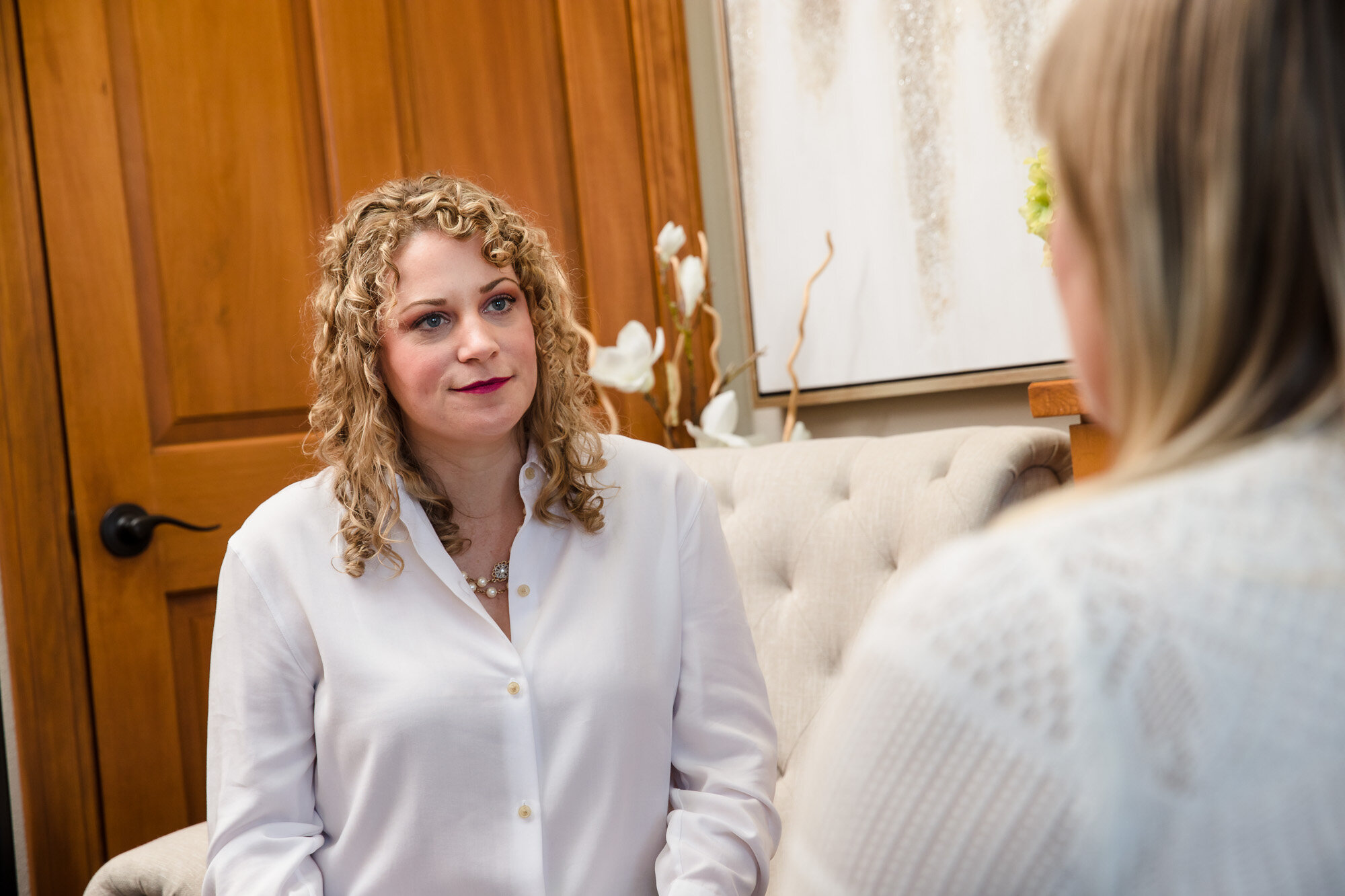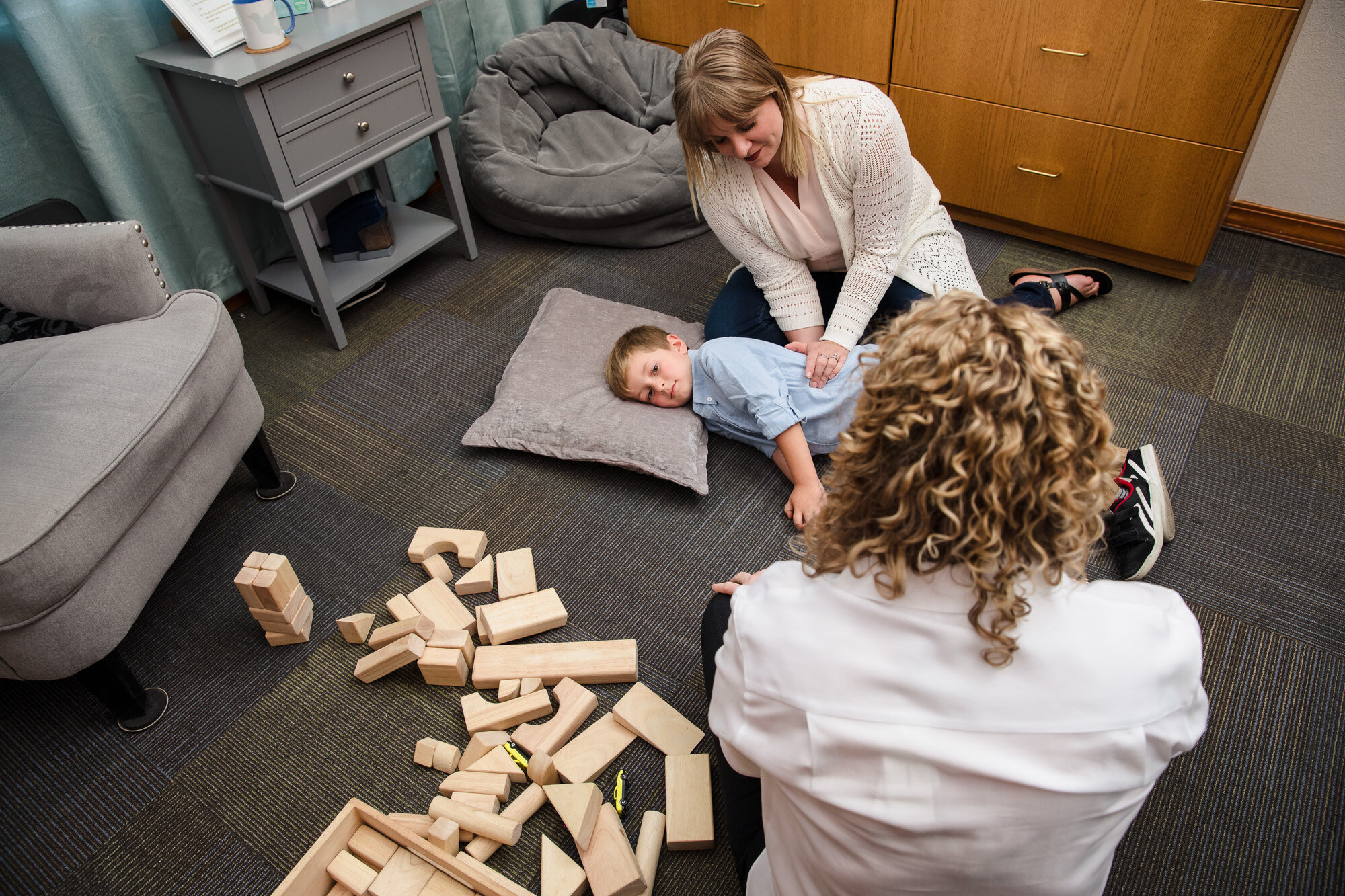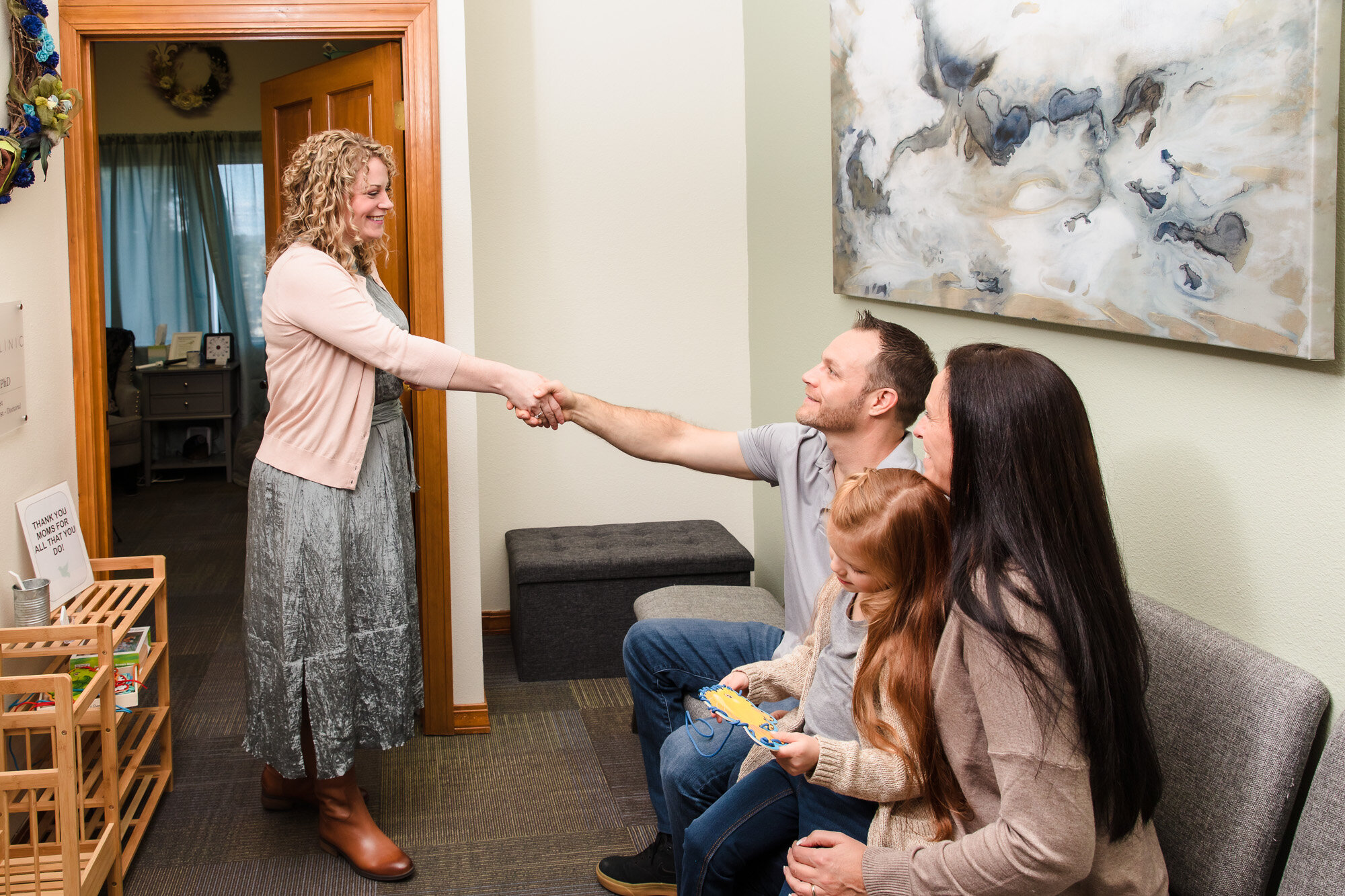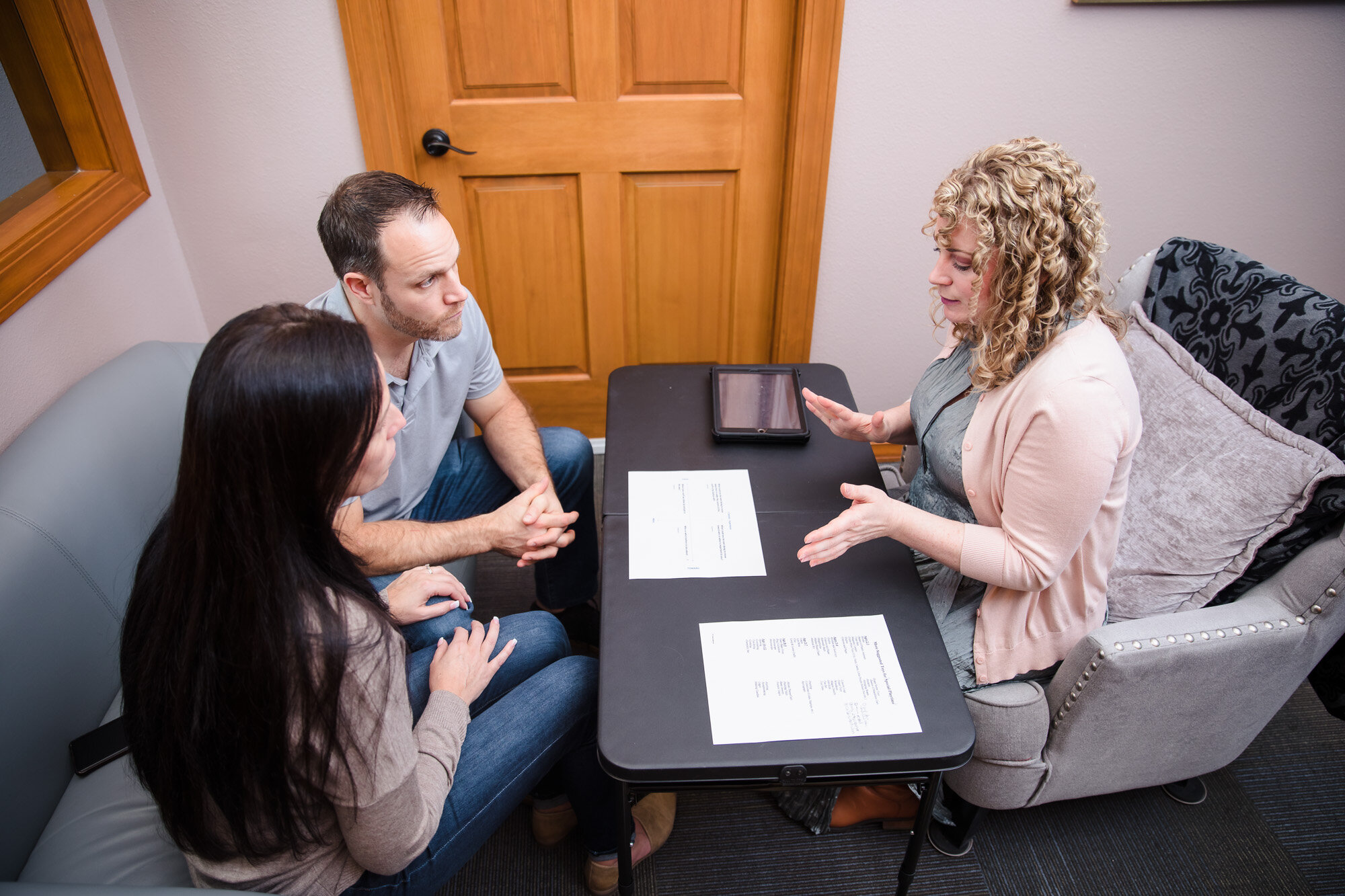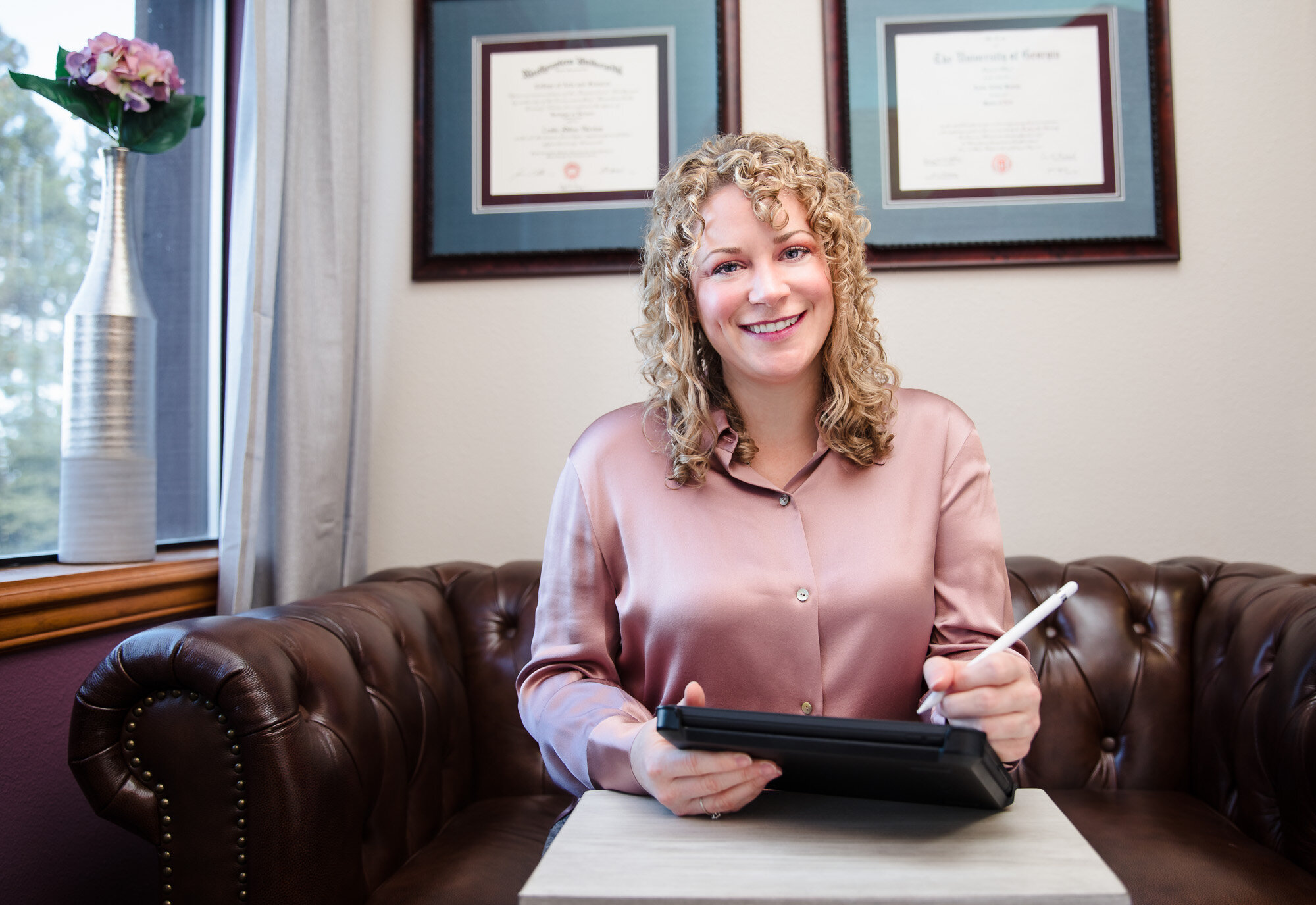Today we are talking about alternative treatments for supporting your child's behavior. Alternative treatments might be things like essential oils, elimination diets, using the moon to decide when you will go out for fun activities versus hunkering down in anticipation of naughty behavior, and other types of old wives tales and Instagram / Pinterest wisdom that is not necessarily linked to evidence-based studies. Many providers, including physicians, psychologists, therapist, and others, get this question all the time. It's a very important question because it frames the way that you as a parent will approach treatment for your child and the energy and attributions you give to interventions along your child's journey.
Read MoreWhy doesn't my child listen to me?
I'm sharing a parent question and answer video I made from my new Facebook group, Positive Parenting Q and A, today.
Today's video focuses on understanding why a child might be responsive and compliant with one parent and not with the other parent and how I address it in therapy. This is a very COMMON question!
I discuss three big reasons for this phenomenon. I also discuss how I approach healing the parent-child relationship to…
A psychologist mom uses mindfulness to teach emotion regulation to her autistic kid
Today I'm chatting with Dr. Rubia Subhani. She is a psychologist practicing in Georgia and also a parent to an autistic child. Across her professional and personal journey she has developed a mindfulness practice to help her child manage anxiety and behavior flare ups.
Read MoreWhy are Anxiety and ADHD confused so often?
Dr. Blevins discusses why ADHD or ADD are commonly confused with anxiety. She talks about how this confusion can happen in the first place and
Read MoreUsing a Calm Down Toolkit
To start off the new year we're chatting with Trina Deboree, an elementary school Media Specialist focused on standards-based reading materials and science/STEM/makerspace. She helps teachers and parents create engaging materials that help foster the love of learning in children.
Read MoreGiftedness and Special Needs
I'm chatting today with a psychologist who specializes in giftedness, Andrea Lein. She and I really nerded out... for a while. We talk about what giftedness is, what twice exceptional is (when a gifted personal has a learning or emotional disability in school), and how parents can approach supporting twice exceptional children. Enjoy!! (I know we did!)
Read MoreHow to Treat Child Aggression
Dr. Blevins discusses how parents and teachers can approach aggression that shows up in children. She discusses how aggression is a form of communication and how parents can start to notice what need that communication serves to meet. She also discusses which service providers are best suited to helping…
Read MoreHow to do breathing and mindfulness | Working with a physical/yoga therapist and psychologist
Meet Jen Wilking! She is a physical therapist and yoga therapist who has honed in on helping people to learn how to relax their mind and body. In this video she teaches us how to breathe properly, and then we do a live demonstration of a 5-minute mindfulness practice. We discuss how breathing correctly and mindfulness can change your stress level and how parents can
Read MoreChild Stuttering and Anxiety | Chatting with an SLP
I'm discussing child stuttering and the often observed anxiety in children today with speech-language pathologist, Kelly Clendaniel, MS, CCC-SLP. Kelly has a special interest in stuttering as well as a child who stutters. She provides up-to-date information on what parents and providers should know about stuttering. I then jump in with information about how anxiety and anxiety disorders develop and are maintained. Anxiety is increasingly understood to be…
Read MoreWhat is clinical behavior analysis?
I'm chatting with Dr. Ben Kennert, licensed psychologist in Michigan and Board Certified Behavior Analyst. We're discussing Clinical Behavior Analysis. It entails several different therapy modalities, including my favorites ACT and PCIT. This is a great conversation for those in the counseling or ABA fields looking to understand the concepts and how clinical behavior analysis is used. It is used very differently than ABA, so be prepared for differences.
Read MoreWriting IEP Goals that Work
Today I'm continuing my series of expert chats with Brandie Rosen, a 25-year veteran of special education and teacher training. She's worked on over 5,000 IEPs! She shares with us valuable insight into writing good IEP goals.
IEP goals are the meat of any special education child's services. They provide the road map for what the school, his teachers, and the child will be accomplishing as part of the special education programming for the next calendar year. Brandie helps me to understand how this individualized map fits in with the general education curriculum and how it pulls services, like speech and language, to support meeting the IEP goals. We also dive into Brandie's work in training teachers, specifically with addressing anxiety in students. Brandie provides a framework for how she promotes a collaborative, expertise driven working style so that teachers can do their best work with students while students are getting all of their needs met.
Have a great day!
Dr. Blevins
Resources
Brandie's parent website: https://brandierosenconsulting.com/
Brandie's teacher website: http://learn2teachwithbrandie.com/
Here is a link to Brandie's resource page for parents; lots of good IEP content! :) https://brandierosenconsulting.com/faq-and-resources/
Read MoreRelaxing Your Body | Managing Stress
If you're like me, you've been a bit more stressed recently. It's hard not to be. On top of normal everyday life stress, we're having a pandemic and a long awaited social awakening to systemic racism.
It's hard to be present and feel 100% everyday. So, I wanted to share how I'm taking care of myself. I'm specifically going to focus on mindfulness and body awareness. They go hand-in-hand, of course. And if you feel this is a little woo woo of a topic, just hold on through the next paragraph...
Psychiatrist Bessel Van Der Kolk, M.D. wrote a New York Times Best Seller on trauma and the body, The Body Keeps the Score, that went into amazing detail about how our bodies hold the scars of emotional, verbal, and systemic trauma (in addition to physical trauma of course) through dysregulation of our fight or flight or freeze response. In the short term this can lead to poor sleep, digestive distress, and irritability. But, the long term consequences can be devastating. The ACEs Study found that chronic diseases, like hypertension, alcoholism, depression, drug abuse, eating disorders, obesity, and other poor future behaviors and outcomes, like high-risk sexual behaviors, smoking, and suicide and more likely to occur in adulthood with increased risk factors in childhood, including multiple forms of trauma. See ACEs Info here.
When I work with a child, I always consider …
Grief in Young Children
I've been wanting to get to today's topic for a bit now. Given the pandemic, I've felt that grief (unfortunately) is a timely topic for families these days. Even if your family isn't touched by grief due to the pandemic, it doesn't hurt to be aware of how grief affects children. It's good info to sock away if ever, God forbid, you need to know it.
A disclaimer about the info in today's video: it reflects my review of the literature, which focuses on children's grief of close family members. If your child experiences grief of a more distant family member or friend, watches your personal grief of a lost one, or experienced a related loss (like the death of a pet) they may experience different or varied signs of grief from what I discuss in this video. This video does not go into aberrant or complex reactions to grief. If you ever have concerns, please contact your child's pediatrician.
Grief is a healthy part of the human experience. It tells us that we cared for and loved the lost one. Young children experience grief too because they love too. However, they have less developed language skills, more concrete thinking capacities, and learn how to understand experiences from watching those around them. This video discusses how that makes children's grief look different than adults.
If you're going through grief, this video may be hard to watch. I encourage you to skip it if you need to, watch it with a supportive person, or to seek your own supportive professional to interpret how you can best take care of yourself and any young children who may be grieving too.
Take care,
Dr. Blevins
Happy Mother's Day! - Pushing Past Emotional Blocks
Dr. Blevins discusses how ACT, Acceptance and Commitment Therapy, describes emotional blocks and supports individuals with pushing through them. She uses a personal example to help illustrate this learning topic and to support moms this Mother's Day as they might be working through heighten stressed due to stay home orders across the country. Emotional blocks can be when we're experiencing a block from our values and have negative feelings as a result.
Read MoreA Parent's Worst Fear When Their Child Needs Therapy
Dr. Blevins discusses the first fear many parents encounter when learning their child may need therapy. Often parents want to know why their child has developed the difficulties they have. This is totally normal! Many parents also take on total responsibility for every outcome in their child's life, leading them to have a deep fear about their own involvement in their child's difficulties. This learning video is about Dr. Blevins experience with many families as they start the therapeutic experience, accept what they can control and what they can't, and learn to embrace self-compassion while owning responsibility for interventions.
Read MoreA Traditional Home School Mom’s Perspective and Tips
Dr. Blevins interviews her good friend, Stephanie, a veteran home school mom of four children from kindergarten through high school. Stephanie has been home schooling for 12 years and currently has two elementary students, a middle schooler, and a high schooler. She discusses what her home school routine looks like normally, how it has changed due to the pandemic, and behavior strategies she uses to increase child motivation, to get her own work done, and to support working with multiple children at once. Most importantly Stephanie and Dr. Blevins discuss the value of parents participating in the education process and the silver lining and mindset shift that parents may want to embrace during the pandemic to emphasize child resiliency, emotional coping, and mental flexibility.
Read MoreSelf-Care is a Mindset
Learn about how to do self-care when you don’t have time to brush your teeth, let alone take a leisurely bubble bath. Dr. Blevins uses Acceptance and Commitment Therapy concepts to teach psychological flexibility concepts as they relate to anxiety, overwhelm, and stress with rigid schedules and hectic responsibilities that parents are facing during normal life and especially pandemic life. A focus on identifying value tokens, defusing from stuck thoughts, and committed action are addressed.
Read MoreHow a Psychologist Does Self-Care After Two Weeks in Isolation
Dr. Blevins tells you how she's engaging in self-care this week. Needs may change as the pandemic changes or isolation is prolonged. Each person should consider where they need support in their life and strive to create ways to provide self-compassion and active coping through self-care that best suits them.
Dr. Blevins' personal strategies include:
1. Taking time for personal life every day. No more workaholic lifestyle. 2. Doing physical tasks/activities that create an inner monologue of caring for one's self, like cleaning the home, doing fun personal grooming, etc. 3. Daily outside exercise 4. Creating space for normal everyday topics 5. Using a heating pad as recommended by a pharmacist to reduce eye strain and tension headaches from increased online work 6. Call people in my social network more often. Recognizing that they are wanting the support as much as me.
Read MoreA Physician and Psychologist Discuss Coronavirus | Families, Anxiety, & COVID-19
Dr. Blevins, a licensed psychologist, invites Dr. Fried, a double Board Certified physician in Family Medicine and Lifestyle Medicine, to have a conversation about the intersection of mental health and medical factors with the novel coronavirus. We specifically focus on how to manage information overload, anxiety, re-framing social distancing to manage stress, prevention behaviors, and how to talk to your kids about the current and future risks and outcomes that may happen with COVID-19.
Read MoreHow Telehealth Therapy Can Support You & Your Child During COVID-19 Pandemic
Learn how telehealth therapy is set up, specifically for therapy with parents and young children. Learn how Dr. Blevins thinks about approaching parent training and engaging children in telehealth, managing safety, and keeping care to provide medically necessary treatment.
Read More
